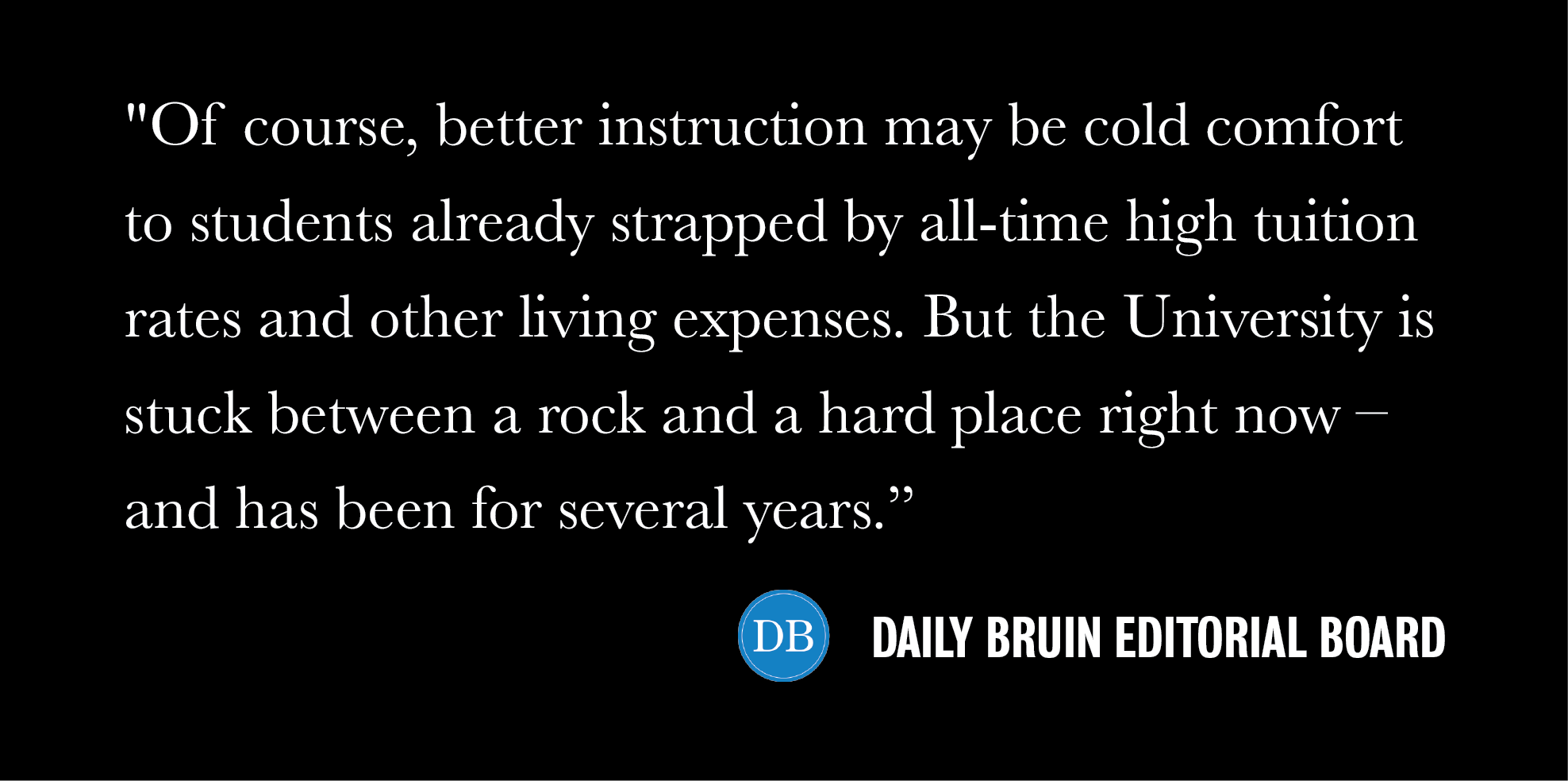Editorial: With potential tuition hike, UC should budget finances more responsibly

By Editorial Board
Nov. 28, 2016 11:29 a.m.
It should not come as any surprise that the University of California is considering an end to the six-year-long tuition freeze. Continuing the tuition freeze is not just unlikely, but potentially harmful to the University’s quality in the midst of rising enrollment and inflation.
While there is no official proposal yet, potential hikes could add up to $300 in tuition annually, according to Ricardo Vazquez, a UC Office of the President spokesperson. Vazquez added financial aid would continue to cover the full cost of attendance for eligible students.
On top of that, Vazquez told The Bruin additional tuition revenue would be directed toward different academic priorities depending on the campus such as reducing student-to-faculty ratio, hiring new faculty and increasing graduate and undergraduate student support.
That said, students will need to hold the University to its word and make sure current funds dedicated to these services are still spent on students and not redirected elsewhere in the University’s bureaucracy.
Fighting the hike itself is a fruitless battle, especially considering that preliminary estimates tag the increase as reasonably modest. Over the past six years, the UC has used creative budgeting to maintain its quality – not always with positive feedback. While the tuition freeze was a welcome relief to in-state students, it did not apply to nonresident students. A critical audit in May found that the UC lowered admissions standards for out-of-state students to benefit from supplemental tuition revenue, which is an additional $26,682 per nonresident undergraduate. For the 2015-2016 academic year, 44 percent of the UC’s academic funding budget came from tuition and fees.
It doesn’t help that state educational funding is in an annual flux, placing the funding onus on students, who continue to feel the squeeze through larger class sizes, cramped housing and difficulty enrolling in the classes they need for graduation. The UC has accepted millions in one-time incentives from the state to increase resident enrollment by 10,000 by 2020, but these funds are insufficient to cover initial enrollment increases, much less sustain them in the long-term.
While tuition revenue will increase with enrollment, it is increasingly clear that freezing tuition limits the UC’s budget and its ability to staff support resources, keep class sizes down and advance adjuncts and faculty.
Of course, better instruction may be cold comfort to students already strapped by all-time high tuition rates and other living expenses. But the University is stuck between a rock and a hard place right now – and has been for several years. State support has been increasing modestly since it was slashed by nearly a third during the Great Recession, but not by nearly enough to compensate for the UC’s expanded commitments.
Ultimately, the money has to come from somewhere, but as students instead of taxpayers become the University’s primary provider, there is all the more reason to treat the budget with scrutiny, especially as any fee increase can only be one in a series.


